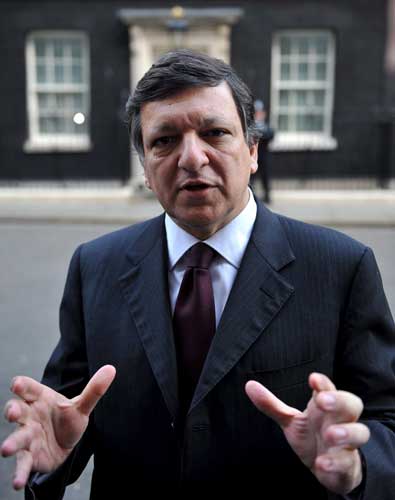UK's clout in EU will fall under Tories

Your support helps us to tell the story
From reproductive rights to climate change to Big Tech, The Independent is on the ground when the story is developing. Whether it's investigating the financials of Elon Musk's pro-Trump PAC or producing our latest documentary, 'The A Word', which shines a light on the American women fighting for reproductive rights, we know how important it is to parse out the facts from the messaging.
At such a critical moment in US history, we need reporters on the ground. Your donation allows us to keep sending journalists to speak to both sides of the story.
The Independent is trusted by Americans across the entire political spectrum. And unlike many other quality news outlets, we choose not to lock Americans out of our reporting and analysis with paywalls. We believe quality journalism should be available to everyone, paid for by those who can afford it.
Your support makes all the difference.Britain will lose influence in Europe if the Conservatives win the general election, the president of the European Commission has warned.
Jose Manuel Barroso, the conservative former prime minister of Portugal, delved into party politics to criticise David Cameron's decision to pull his MEPs out of the main centre-right bloc, the European People's Party (EPP), in the European Parliament after elections for it are held in June. The move is effectively a divorce from the parties of the French President Nicolas Sarkozy and the German Chancellor Angela Merkel.
Mr Barroso, who met Mr Cameron in London yesterday, said: "I regret that decision. My party is a member of the EPP and I regret this decision because in Europe [it is] the main political parties and the main political families that really shape the European agenda... Of course these are the most influential families in Europe."
Labour will seize on Mr Barroso's remarks as evidence that the Conservatives would be isolated if they win the election. Ministers have already claimed Mr Cameron is out of step with world opinion on the economy because he opposes a fiscal stimulus to combat the recession.
Mr Cameron promised to leave the EPP, which many Tories regard as too federalist, during his 2005 campaign for the Tory leadership. His party formally served notice of his decision in Strasbourg last week. The Tories will form a new group in the European Parliament along with Eurosceptic parties from the Czech Republic and Poland.
Yesterday the Tory leader said: "I believe profoundly that we have got to have in politics a sense that if you say something in Westminster you say the same thing in Strasbourg and Brussels. I believe we should be in the EU but we don't want to see further transfers of power from Westminster to Brussels. We think that process of integration has gone too far already."
Mr Cameron insisted he had had a "very good" meeting with Mr Barroso and was "a big supporter" of the Commission's president, who was backed by Gordon Brown yesterday for a second spell in the job when his five-year term expires in October.
Mr Cameron was speaking at his monthly press conference, where he signalled that an incoming Tory government would freeze the BBC licence fee in a drive to force public bodies to "deliver more for less". The fee for a home with at least one colour television will rise from £139.50 to £142.50 next month as part of a six-year deal agreed by the Government in 2007.
Mr Cameron said he opposed the latest increase – which will raise an extra £68m for the corporation – and hinted the party would veto further rises if it wins the election expected next year.
The BBC Trust said: "Funding stability is important to the BBC's creative and editorial independence."
Join our commenting forum
Join thought-provoking conversations, follow other Independent readers and see their replies
Comments